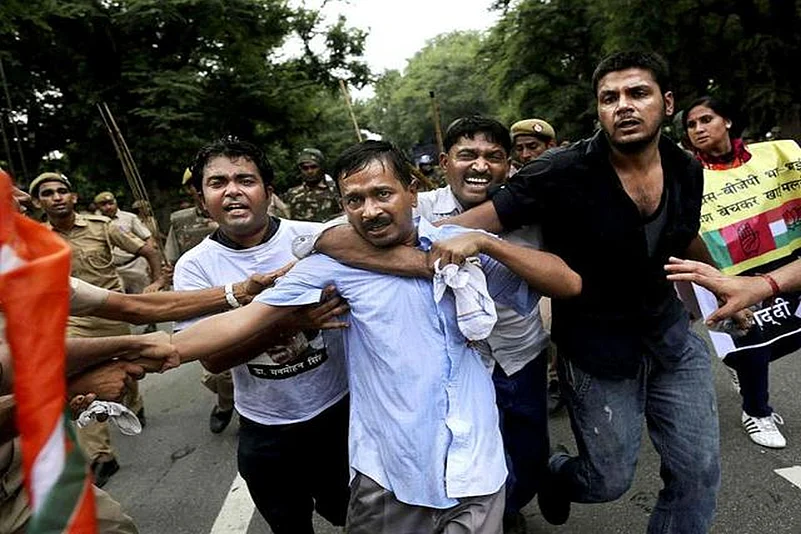For all its self-professed âGandhianâ ways, the AAP has never been at peace with the political space it occupies and strives desperately to expand. Here is a look at ten reasons why the party would even like to show off its anger every now and then:
- For one, the five-and-a-half-year-old Aam Aadmi Party emerged from a social movement that was led mostly by the youths â a community that always tend to be energetic and fierce. In order to live up to the image it earned out of that movement, the AAP cultivates an image of anger.
- The AAP feels that sustained central government âinterferenceâ is incapacitating it from delivering on most of the promises the party had made to its voters in Delhi. That adds to the AAPâs angry conduct.
- One of the most important issues related to the government and administration of Delhi is the question of statehood. Itâs an issue pending before the Supreme Court over six months now. Until the apex court gives its verdict on the relationship between Delhiâs elected leaders and its Lieutenant Governor, the ruling AAP will perhaps remain quite agitated.
- For every new effort aimed at public good that the AAP has proposed, the L-G of Delhi has repeatedly returned the files, seeking comments and clarification. This has enraged the AAP, which argues that the Constitution does not give the L-G such unlimited or sleeping powers to delay projects (such as AAP mohalla clinics, distribution of ration at the doorstep).
- Many in the AAP are also angry also because their leaders have recently apologised to BJP leaders for having called them corruptâduring the IAC (India Against Corruption Movement of 2001). Many in the party would view it as a compromise, they believe.
- More than 10 AAP legislators and other leaders, as well as their relatives, have been questioned, arrested, interrogated by various central government agencies including the police. However, one by one, all the cases against the leaders are being dropped.
- The AAP has attempted to give clean governance to the people of Delhi, but a constant barrage of cases piled against them has dented the partyâs image.
- Many people have questioned the AAPâs tactics adopted in agitation, accusing it of being a party of dharnas. This, AAP leaders feel, has led to them being misunderstood and misrepresented. In fact for AAP leaders, protests, hunger strikes and the sit-ins are part and parcel of their political style, which they claim are inspired by Mahatma Gandhiâs ways. (For instance, DCW chairperson Swati Maliwal held a nine-day hunger-strike this summer [April] and managed to convince the BJP government to bring new penalties against child rapists.)
- The AAP feels the media, particularly the TV channels, are against the party and support their rivalsâprimarily the BJP and Congress.
- AAP supremo, Delhi chief minister Arvind Kejriwal, has often being ridiculed for his sartorial style and what many like to dub as idiosyncrasies. Whenever Kejriwal has been mocked, he seeks to âreturn the favourâ by proving that he still has the support of Delhiâs public.
















